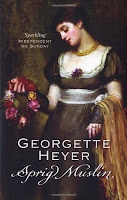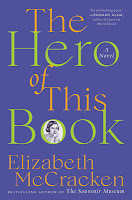I received this book for free from Netgalley. That did not influence this review.
Women’s fiction fans are likely familiar with Lynn Cullen’s work. (See my previous reviews of Mrs. Poe and Twain’s End.) Her latest release is the compelling novel of the race to create a vaccine for polio, The Woman with the Cure.
Polio is now all but eradicated (thanks to vaccines) so it is difficult, in the 21st century, to wrap our minds around what a devastating disease it was. With today’s improved therapies, we no longer think of the horror of the “iron lung.” The recent race for a Covid vaccine and the debates about Moderna, Pfizer, and Johnson & Johnson call to mind the competition between Salk and Sabin. But my knowledge of polio and its vaccine was of a telescoped history. I thought of it as a couple of years of closed pools and movie theaters sometime in the 1950s – and then the miraculous vaccine. This couldn’t be more wrong.
The Woman with the Cure begins in 1940, and polio is already a scourge bringing seasonal epidemics of paralysis and death, primarily to children. Dorothy Horstmann is a young resident physician at Vanderbilt, who only got the position by applying as D.M. Horstmann to disguise her sex. Despite rampant sexism, she succeeds in immersing herself in work in the polio ward and also gets involved in research. Early in her career, she has a chance meeting with Dr. Albert Sabin which sets her on her life’s course: determining how patients are infected, how the infection travels to the nervous system, and, if the disease cannot be cured, determining how to prevent it.
The novel is told with a chronological series of incidents that demonstrate the slow progress of medical research, the intense competition between the various laboratories (especially between Sabin and Salk), the egotism of the men (which got in the way of the exchange of information and often prevented progress), and the horrible discrimination, both overt and insidious, that Dorothy contended with every day of her life
Although Dorothy is the protagonist, the novel is peopled by all the great (American) names in polio research. The majority of the researchers are men, and they suck up all the oxygen in the room. Most of the chapters are Dorothy’s, but other women (nurses, secretaries, laboratory technicians, wives, and mothers) are also presented in small slices of life. In contrast to the men, who care about finding a vaccine so that they can be the ones celebrated in the press, the ones to secure funding, the ones winning the Nobel Prizes, the women want a vaccine to save lives. The men compete; the (few) women collaborate. While the novel may overstate this case, it does present a convincing picture of male egos run amok.
It was not until 1960 that a safe, effective polio vaccine was made widely available. The race was a slow one. The novel puts into perspective the rather miraculous state of vaccine research and development today.
Cullen does a superb job (again) of bringing the varied characters in her story into focus. Dorothy Horstmann is a real historical figure whose research was fundamental in understanding polio and critical to the development of the vaccine. She deserves to be rediscovered in Cullen’s story.
























